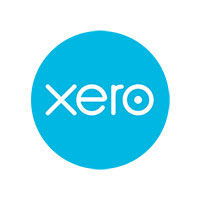
From the 1st June 2019, HMRC have made further changes to tax free fuel rates. Overall, most of the rates have increased for all types of fuels. HMRC publish these rates every 3 months, the rates change to reflect increases or decreases in fuel prices. If you’re not aware of these changes, there is a risk that you could be over-claiming or underpaying and potentially incurring a significant liability for the company car fuel benefit charge (as the full cost of private motoring has not been made good).
Who do these Changes Apply to?
Tax free fuel rates are the guideline rates at which employers can reimburse employees for company car fuel without tax or NIC implications. This removes the need for a detailed calculation of the actual cost of the fuel.
These rates apply if you have a company car and you:
- claim a mileage allowance for your business journeys or
- use your car for private travel and repay your employer for the fuel used.
These rates do not apply to:
- company car drivers whose employers pay for all of their fuel
- employees who use their own car for business journeys.
When Does the Change Come into Effect?
The tax free fuel rates changed from 1st June 2019, but for one month from the date of change, employers may use either the previous or new current rates. The next change will take effect from 1 September 2019.
What Happens if I Claim Incorrectly?
If you use the approved rates, you won’t be over-claiming or underpaying and therefore you will not be taxed on any fuel benefit.
The problem arises if you have been claiming more for business mileage or repaying less for private mileage.
HMRC’s view is that if you have been claiming more for business mileage, or repaying less for private mileage than the HMRC advisory rates, the fuel for private travel is in effect provided by the employer. The car driver is therefore taxed on the fuel benefit scale charge, as the full cost of fuel used privately has not been made good.
The risk is that company car drivers who may have inadvertently paid a few pence less for their private travel, or claimed more from their employer than the official rate, will be taxed on the full fuel scale benefit. The full scale benefit assumes that up to £8,917 worth of private fuel has been provided (where emissions are 165g/km or more), adding up to £4,012 to the annual tax bill of a 45% taxpayer. The tax cost can equate in general to more than 20,000 miles worth of fuel. Employers would also be hit with the extra Employer National Insurance (Class 1A) on the fuel benefit.
What are the New Rates?
The new rates per mile are as follows:
Petrol cars:
| Engine size | New Rate | Old Rate |
| 0 – 1,400 | 12p | 11p |
| 1,401 – 2,000 | 15p | 14p |
| Over 2,000 | 22p | 21p |
Diesel cars:
| Engine size | New Rate | Old Rate |
| 0 – 1,600 | 10p | 10p |
| 1,601 – 2,000 | 12p | 11p |
| Over 2,000 | 15p | 13p |
LPG cars:
| Engine size | New Rate | Old Rate |
| 0 – 1,400 | 8p | 7p |
| 1,401 – 2,000 | 9p | 8p |
| Over 2,000 | 14p | 13p |
Hybrid cars can be treated as either petrol or diesel cars.
The Advisory Electricity Rate for fully electric cars remains at 4p per mile.
HMRC will review these rates quarterly on 1 December, 1 March, 1 June and 1 September.
Whatever your situation, whether you are paying your employer for fuel used on private travel, or claiming business mileage from your employer, make sure you are aware of the changes and adjust the amount you claim or repay accordingly.
Please contact Mark Wildi or Vinnie Rome if you would like to discuss any of the points covered in this article, on 01689 877081 or complete our online form.




